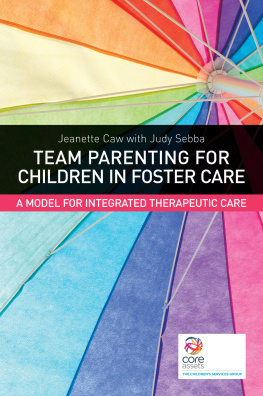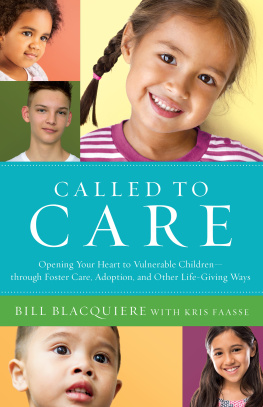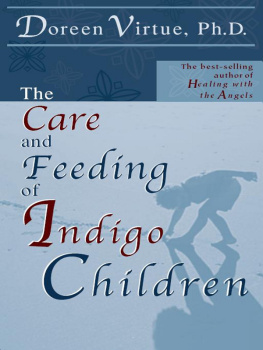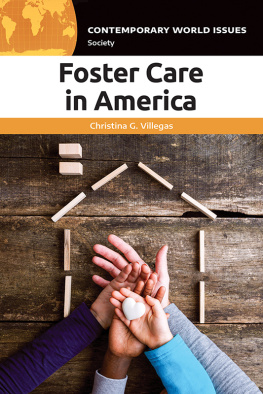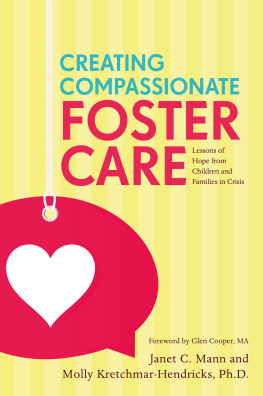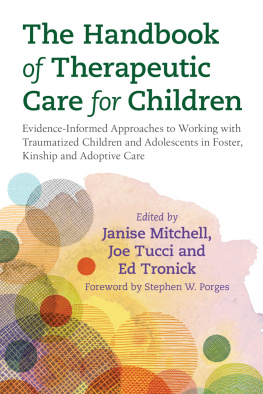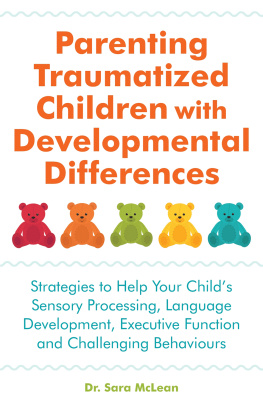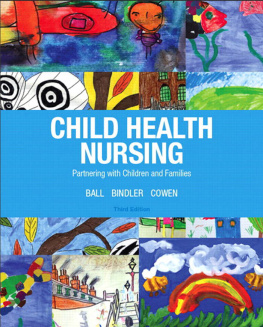
The Wellbeing of Children in Care
Because of their previous damaging experiences, many children and young people enter the care system having already developed emotional problems or at a greater risk of developing them. However, in addition to this, research and experience consistently show that being in care is likely to aggravate or worsen developmental problems. Why does public care have these negative effects on children and what is needed to alleviate their problems?
This important book looks at how children in care can best be helped to attain desirable developmental outcomes. Owusu-Bempah introduces his notion of socio-genealogical connectedness to help explain why children in kinship care fare better than children in non-relative foster care. He argues, using recent empirical research as well as a wide range of literature from the adoption field and attachment theory, that knowledge about ones hereditary background is an essential factor in looked-after childrens long-term adjustment to placement. As with all children, this knowledge forms the basis of their identity, self-worth and general outlook.
An invaluable contribution to the area, this book offers promising routes to understanding better and working more effectively with virtually all families, irrespective of their cultural, ethnic and religious backgrounds. It will interest researchers and students of attachment theory, adoption and fostering, child development and childrens mental health.
Kwame Owusu-Bempah is Emeritus Reader in Psychology at the University of Leicester, UK.
The Wellbeing of Children in Care
A new approach for improving developmental outcomes
Kwame Owusu-Bempah
First published 2010
by Routledge
2 Park Square, Milton Park, Abingdon, Oxon, OX14 4RN
Simultaneously published in the USA and Canada
by Routledge
270 Madison Avenue, New York, NY 10016
Routledge is an imprint of the Taylor & Francis Group, an informa business
This edition published in the Taylor & Francis e-Library, 2010.
To purchase your own copy of this or any of Taylor & Francis or Routledges collection of thousands of eBooks please go to www.eBookstore.tandf.co.uk.
2010 Kwame Owusu-Bempah
All rights reserved. No part of this book may be reprinted or
reproduced or utilised in any form or by any electronic, mechanical
or other means, now known or hereafter invented, including
photocopying and recording, or in any information storage or retrieval
system, without permission in writing from the publishers.
British Library Cataloguing in Publication Data
A catalogue record for this book is available from the British Library
Library of Congress Cataloging-in-Publication Data
Owusu-Bempah, Kwame.
The wellbeing of children in care: a new approach for improving
developmental outcomes / Kwame Owusu-Bempah.
p. cm.
Includes bibliographical references.
1. ChildrenInstitutional carePsychological aspects. 2. Foster
home carePsychological aspects. 3. AdoptionPsychological aspects.
4. Child development. 5. Child welfare. I. Title.
HV873.O98 2010
362.732dc22 2009046042
ISBN 0-203-85172-2 Master e-book ISBN
ISBN10: 0415479398 (hbk)
ISBN10: 0415479401 (pbk)
ISBN10: 0203851722 (ebk)
ISBN13: 9780415479394 (hbk)
ISBN13: 9780415479400 (pbk)
ISBN13: 9780203851722 (ebk)
Contents
Preface
Throughout history, fostering has functioned as a childcare mechanism and family support system. It remains a normal and important childcare service in most societies outside the Western world. In these cultures, fostering occurs among kin. Anthropological studies from these cultures indicate no link between fostering and negative psychosocial developmental outcomes. In contrast, in Western societies where fostering is perceived as an anomaly, there exists abundant evidence showing that children growing up in foster care exhibit myriad psychosocial developmental problems, notably mental health and behavioural difficulties. It shows, however, that, within the public care system, children being raised by relatives fare better than their peers growing up in non-relative foster care and those in residential settings.
Whilst theorists and practitioners tend to explain the developmental difficulties facing children in care in terms of attachment concepts, this book offers the innovative theory of socio-genealogical connectedness as providing a more helpful approach to understanding these childrens difficulties and to designing effective interventions and developing appropriate services to meet their psychosocial developmental needs. This idea proposes that a sense of socio-genealogical connectedness is an essential factor in childrens adjustment to separation, and forms the basis of their emotional and mental health. A central argument of the book is that although non-kin foster families seek to meet the childrens physical and other needs, they cannot meet their need for a sense of connectedness or continuity. The author presents evidence from the anthropological, clinical and professional literature indicating that kinship care meets this essential need; he argues that, in the best interest of the child, kinship care is superior to other placement options.
Organization of the book
Since antiquity, the institutions of adoption and fostering have always formed an important feature of all human societies. provides examples from studies in diverse regions: Africa (notably West Africa), Oceania, North America and South America.
While looks at fostering in contemporary Western societies. It considers changes in societal attitudes since the industrial revolution and the consequences of those changes for children who require alternative care. It discusses the factors associated with why, in todays Western societies, even the extended family or kin are reluctant or unable to care for their own or even deterred from doing so.
The motives for fostering, as opposed to adoption, are diverse and complex, particularly from a cross-cultural perspective. Whatever the motives for child fostering or the circumstances in which fostering takes place today, it entails considerable costs or challenges for the caregiver. examines theories of fostering and the reasons why families and individuals are prepared to invest in children who are not their progeny. It examines also the motives for giving up a child to be raised by others.
discusses the two broad forms of foster care in contemporary Western societies: non-kin (or non-relative) foster care and kinship foster care. It further considers the two emergent types of kinship care: formal (or public) and informal (or private) kinship care. This chapter deals with the question: When does kinship care become public care? It considers also the implications of this dichotomy for children cared for by kin and their caregivers.
Chapters then addresses the crucial question: What type of placement best serves the childs interest? In so doing, it examines the observed disparity in psychosocial developmental outcomes according to type of placement.
, the final chapter, considers the implications of the main arguments of the book for theory and research, policy and professional childcare practice.


